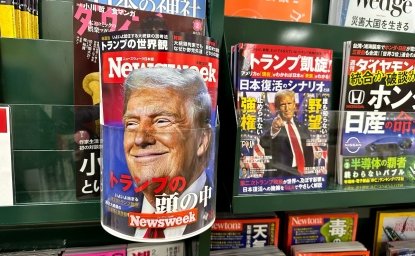Is Negotiating Political Agreement a Lost Art?
Voters often complain that members of Congress “can’t seem to agree on anything.” You know people are on to something when their own representatives in Washington echo the same complaint — one of the few bipartisan sounds emanating from the capital, if not in perfect harmony.
Political scientists are now weighing in on the same topic though they don’t all agree on the causes and effects of contemporary political gridlock, let alone the cures. Princeton’s Michael Barber and Nolan McCarty recently analyzed some of the popular explanations and remedies in a paper on the “Causes and Consequences of Polarization,” published as part of an American Political Science Association task report on “Negotiating Agreement in Politics.”
The authors concede that “social science research has only recently begun to help shape … discussions on the causes of polarization,” though the reform-minded are already looking for “panaceas” to mitigate its effects. Perhaps ironically, the reforms most backed by the public and press for reducing polarization — neutral redistricting, open primaries and campaign financing changes — have already been found wanting in various studies.
According to the authors, “The evidence in support of gerrymandering as a cause of polarization is not strong,” and “it is implausible that partisan primaries are a major cause of polarization.” Likewise, “there is a weak connection between campaign spending and election outcomes.”
Other reformers look to internal procedural changes in Congress as a way to reduce partisanship and gridlock. They point to the large increase in party-line votes on amendments in the House since recorded votes were first permitted in the committee of the whole in the 1970s. But this does not explain the parallel growth in polarization in the Senate.
Another explanation is the growing powers of party leaders who can exert pressures on members to vote the party line. “Unfortunately,” the authors write, “the effects of party can be recovered only under strong assumptions,” and an alternative methodology actually shows “declining party pressures in the contemporary Congress.”
Rather than look for electoral or discrete procedural fixes to reduce polarization and gridlock, the APSA task force has recommended that Congress relearn the art of deliberative decision-making. That entails using an “integrative negotiation” process in which participants discover or create joint gains beyond what was originally considered the bounds of possible agreement — what they call pie-expanding versus a fixed-pie bias.
The task force members concede “it would be naïve to think that all conflicts can be negotiated,” especially in today’s Congress. Sometimes parties and their allied interest groups prefer electoral gains over substantive solutions. In such cases, they write, “political struggle rather than negotiation may well be the better recourse for altering the status quo.”
But other issues do lend themselves to negotiation and can succeed if “the rules of collective political engagement” are followed. Those rules include a formal role for nonpartisan, technical expertise in advance of specific legislative proposals; repeated interactions among participants to nurture trustworthy behavior; penalty defaults (action-forcing deadlines); and negotiations in private settings that avoid posturing in favor of pondering.
Deliberative negotiation has occurred since the beginning of the republic, the report observes. It is now a matter of convincing Congress to “return to the basics.” The difficulty in implementing such an approach today is that Congress is time-limited while deliberation is a timeless value. Each Congress is under a two-year gun, each committee has only a few hours each week to process numerous pieces of legislation, and each member is buffeted between committees, office appointments, floor votes and fundraisers, all in truncated, three-day workweeks.
Second, it is true that more can be accomplished in candid, private discussions. Sun exposure can be malignant to good-faith bargaining. However, House and Senate rules prohibit closed committee sessions except for sensitive national security matters. Rolling back Congress’ sunshine rules is a non-starter.
Third, it is doubtful that many of today’s re-election-fixated members are willing to master the art of deliberative negotiation, let alone sit through more balanced, thorough and prolonged committee hearings and meetings. Dialing for campaign dollars takes priority.
The main obstacles to results-driven deliberation are a paucity of informed argumentation and an excess of dramacracy — acting out rather than acting on problems. Still, efforts can and should be made to restore some semblance of rational discourse in committees that empowers members of both parties to contribute and benefit. The APSA is to be commended on initiating this back-to-basics conversation.
Author

Former Director, the Congress Project, Wilson Center; Former Staff Director, House Rules Committee
Explore More
Browse Insights & Analysis
Bimonthly Column on Procedural Politics From "Roll Call"

The Transatlantic Partnership: A Status Report from the Global Europe Program

